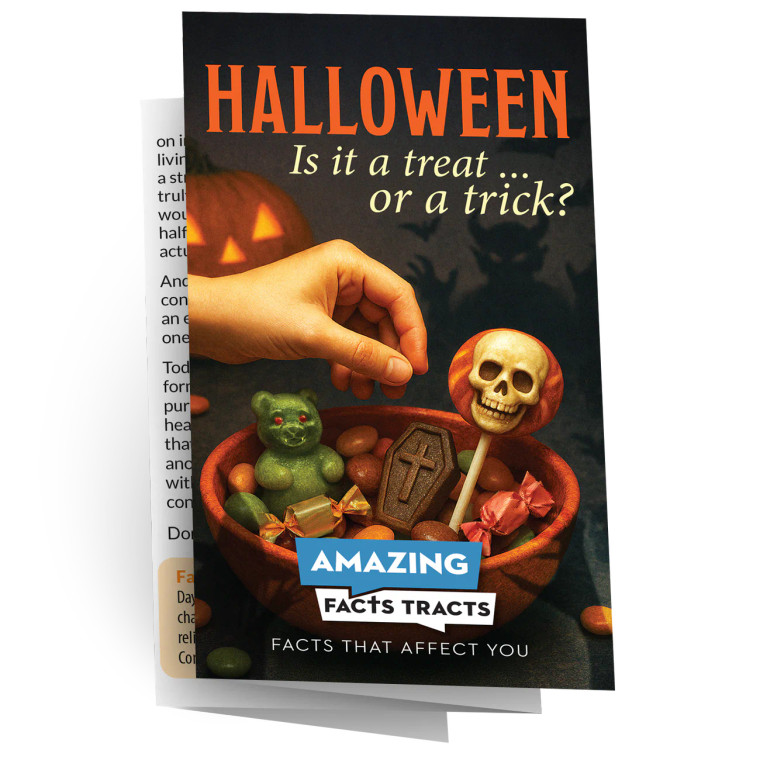
TOPIC: HALLOWEEN
Packets of 100 for only $16.95
Amazing Facts Tracts stand out from the crowd.
- Free link to a magazine, book, or video download
- Easy to read type
- Covers key Bible teachings
- Connects to free Bible study guides
- Use with evangelism tracking database
- Nurture leads with follow-up emails on the tract topic
Partial Text on tract:
An Amazing Fact: Did you know that the death rate tends to be higher on Halloween due to a combination of increased pedestrian accidents, drunk driving incidents, and violent crimes occurring more frequently on that night?
What comes to mind when you think about Halloween? Trick-or-treaters, candy, pumpkins, or kids dressed up in cute costumes? Or how about witches, ghosts, blood, gravestones, scary movies, haunted houses, and death?
But have you ever wondered where Halloween actually comes from? And is this holiday an innocent treat, or does it trick us into believing dangerous lies about our world?
The Day of the Dead
Halloween traces its roots to ancient Celtic traditions. Over two thousand years ago, Celtic tribes celebrated Samhain, marking the harvest’s end and a time when spirits were thought to roam the earth. In the 8th century, Pope Gregory III set November 1 as All Saints’ Day, blending some Samhain rituals into the night before—All Hallows’ Eve, now called Halloween.
This might sound benign, but a closer look reveals that the festival of Samhain was named for the lord of death. Celtic priests, called druids, built huge bonfires on which humans were sacrificed. This bloody practice continued for centuries until Rome conquered Britain and outlawed it.
But one festival custom that still has a strong influence on Halloween today is communing
with the dead. When the Celts were conquered, they were forced to become Roman citizens and join the official church: Roman Catholicism. However, these new “converts” clung to their pagan practices.
Unable to eliminate the influence of Celtic festivals, the church sought to “sanctify” some of them. Thus, Samhain became All Saints’ Day, proclaimed to honor deceased saints. Even then, it remained a pagan inspired celebration of the “Day of the Dead.”


